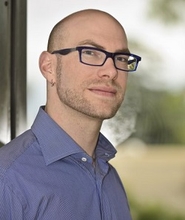QUANTITATIVE RESEARCH METHODS WORKSHOP
Abstract: A burgeoning literature recognizes that the efficacy of the state is crucial for economic growth and citizen welfare. However, much of that literature abstracts away from the institutional details underlying state capacity. We develop a theory that provides a working definition of state capacity—the ability to handle administrative problems of varying complexity, such as tax collection—and examines how different incentives and structures affect that capacity. We conceive of the state as a knowledge hierarchy, or an information-processing institution that passes problems up a set of organizational layers until a layer with the required expertise solves it. Knowledge hierarchies are costly to establish and operate, and politicians have different preferences over which problems to solve. We embed investments in the state in a simple political economy framework, where in each period a forward-looking politician representing one of two parties chooses how to build upon existing institutions. The framework identifies the role of personnel costs, organizational costs, electoral imbalances, and partisanship on the extent and distribution of problems solved by the state.
Erik Snowberg is the Canada Excellence Research Chair in Data-Intensive Methods in Economics at the Vancouver School of Economics at the University of British Columbia. His research has two foci: using social science theory to design better experiments involving people, with applications in medicine and economic development; and combining behavioral economics with political economy to better understand the roots of partisan politics and its effects on policy.
Dr. Snowberg has earned a National Bureau of Economic Research Faculty Research Fellowship, a Stanford Institute for Economic Policy Research Dissertation Fellowship, and an Honorable Mention from the National Science Foundation Graduate Research Fellowship Program. He received his PhD in business administration from Stanford University. He holds undergraduate degrees in math and physics from the Massachusetts Institute of Technology. Prior to joining UBC, Erik was a professor of economics and political science at the California Institute of Technology (Caltech).
This virtual workshop is open to the Yale community. To receive Zoom information, you must subscribe to the Quantitative Research Methods Workshop at this link: https://csap.yale.edu/quantitative-research-methods-workshop.
The series is sponsored by the ISPS Center for the Study of American Politics and The Whitney and Betty MacMillan Center for International and Area Studies at Yale with support from the Edward J. and Dorothy Clarke Kempf Fund.
